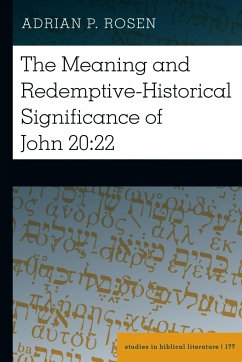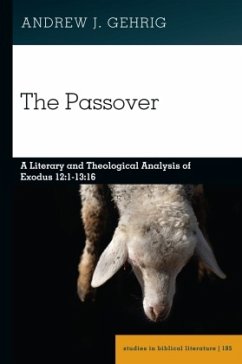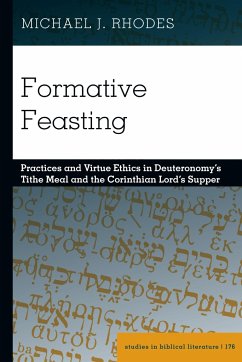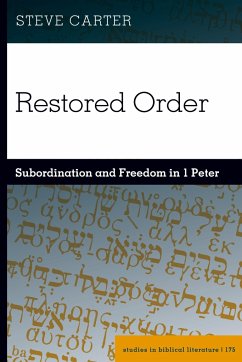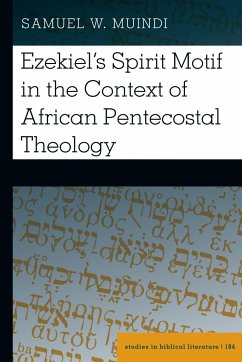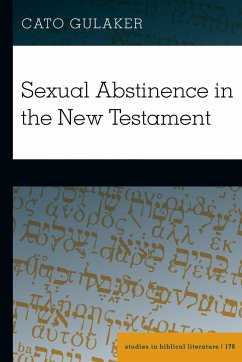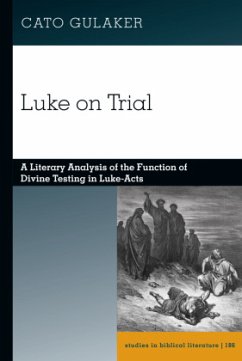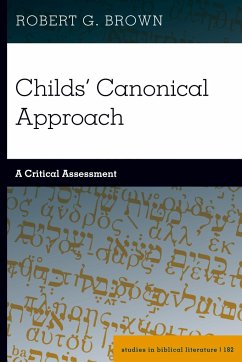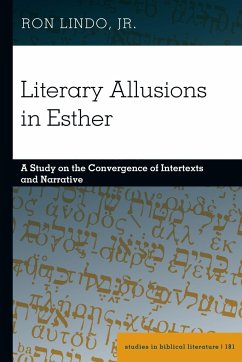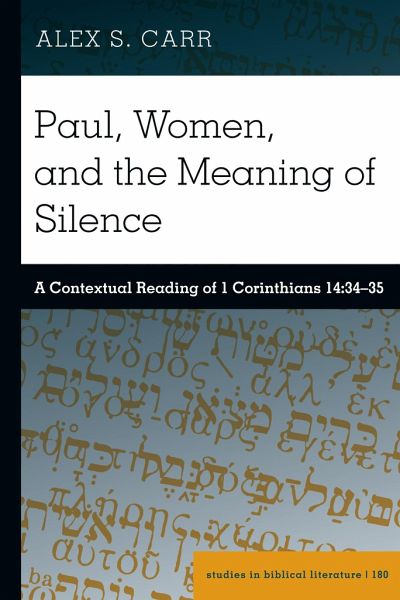
Paul, Women, and the Meaning of Silence
A Contextual Reading of 1 Corinthians 14:34-35
Herausgegeben: Gossai, Hemchand
Versandkostenfrei!
Versandfertig in 6-10 Tagen
89,95 €
inkl. MwSt.
Weitere Ausgaben:

PAYBACK Punkte
0 °P sammeln!
The definition of silence is essential to the interpretation of 1 Corinthians 14:34-35. What did Paul mean when he silenced women in church? In Paul, Women, and the Meaning of Silence, author Alex S. Carr compares the Greek verb Paul used for silence with other ancient Greek sources containing the same term. Through this comparison, he demonstrates consistency within 1 Corinthians and the other Pauline letters. Through comparison with other passages in the New Testament, Carr also demonstrates that these passages do not contradict the type of silence in 1 Corinthians 14.Paul, Women, and the Me...
The definition of silence is essential to the interpretation of 1 Corinthians 14:34-35. What did Paul mean when he silenced women in church? In Paul, Women, and the Meaning of Silence, author Alex S. Carr compares the Greek verb Paul used for silence with other ancient Greek sources containing the same term. Through this comparison, he demonstrates consistency within 1 Corinthians and the other Pauline letters. Through comparison with other passages in the New Testament, Carr also demonstrates that these passages do not contradict the type of silence in 1 Corinthians 14.
Paul, Women, and the Meaning of Silence further considers cultural and historical contextual issues, including women's education and speech in the Greco-Roman world.
This book will assist Bible scholars, pastors, and theological students in navigating some of key interpretive issues in 1 Corinthians. Scholars seeking to locate primary source material will especially profit. Pastors will find anexplanation of various views as they preach and teach on the subject. The book is one of the most extensive discussions of this challenging New Testament passage on women in the church.
"In what is possibly the most thorough examination of 1 Corinthians 14:34-35 to date, Alex Carr offers an insightful discussion of the history of research, literary context, historical context, and theological context of this debated text. His knowledge of the topic is vast, his arguments cogent, and his conclusion persuasive. Carr's research will topple several of the popular theories and become the work with which all future scholarship simply must engage."
-Charles L. Quarles, Research Professor of New Testament and Biblical Theology; Charles Page Chair of Biblical Theology, Southeastern Seminary
"After decades of debate and libraries of books on the ministry of women, Alex Carr's study shows there are new insights still to be had from examining the biblical texts afresh. Paul, Women, and the Meaning of Silence demonstrates that lexical, literary, historical, and theological factors weigh against Paul's command in 1 Corinthians 14:34 demanding 'absolute silence' of women. Instead, Carr shows that Paul's command enjoins women to temporary silence during a specific time in the church gathering, namely, during the weighing of prophecies. His findings support the authenticity of the text and shed light on the contribution and participation of women in the first century church and today."
-Claire S. Smith, Author of Pauline Communities as 'Scholastic Communities': A Study of the Vocabulary of 'Teaching' in 1 Corinthians, 1 and 2 Timothy and Titus (2012)
"1 Corinthians 14:34-35 at first glance appears to silence all women in church, yet 11:5 permits them to pray and prophesy if their heads are covered. A plethora of approaches has developed both to affirm and deny that this is an irreconcilable contradiction. But Alex Carr deftly guides his readers through the maze of options that scholars have developed, showing there is no contradiction at all. A welcome addition to a crowded field of studies."
-Craig L. Blomberg, Distinguished Professor Emeritus of New Testament, Denver Seminary
Paul, Women, and the Meaning of Silence further considers cultural and historical contextual issues, including women's education and speech in the Greco-Roman world.
This book will assist Bible scholars, pastors, and theological students in navigating some of key interpretive issues in 1 Corinthians. Scholars seeking to locate primary source material will especially profit. Pastors will find anexplanation of various views as they preach and teach on the subject. The book is one of the most extensive discussions of this challenging New Testament passage on women in the church.
"In what is possibly the most thorough examination of 1 Corinthians 14:34-35 to date, Alex Carr offers an insightful discussion of the history of research, literary context, historical context, and theological context of this debated text. His knowledge of the topic is vast, his arguments cogent, and his conclusion persuasive. Carr's research will topple several of the popular theories and become the work with which all future scholarship simply must engage."
-Charles L. Quarles, Research Professor of New Testament and Biblical Theology; Charles Page Chair of Biblical Theology, Southeastern Seminary
"After decades of debate and libraries of books on the ministry of women, Alex Carr's study shows there are new insights still to be had from examining the biblical texts afresh. Paul, Women, and the Meaning of Silence demonstrates that lexical, literary, historical, and theological factors weigh against Paul's command in 1 Corinthians 14:34 demanding 'absolute silence' of women. Instead, Carr shows that Paul's command enjoins women to temporary silence during a specific time in the church gathering, namely, during the weighing of prophecies. His findings support the authenticity of the text and shed light on the contribution and participation of women in the first century church and today."
-Claire S. Smith, Author of Pauline Communities as 'Scholastic Communities': A Study of the Vocabulary of 'Teaching' in 1 Corinthians, 1 and 2 Timothy and Titus (2012)
"1 Corinthians 14:34-35 at first glance appears to silence all women in church, yet 11:5 permits them to pray and prophesy if their heads are covered. A plethora of approaches has developed both to affirm and deny that this is an irreconcilable contradiction. But Alex Carr deftly guides his readers through the maze of options that scholars have developed, showing there is no contradiction at all. A welcome addition to a crowded field of studies."
-Craig L. Blomberg, Distinguished Professor Emeritus of New Testament, Denver Seminary





